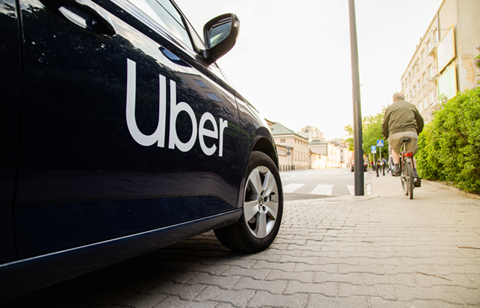
An employment court in New Zealand has ruled that four Uber drivers should be classed as employees, rather than contractors, entitling them to increased rights and protections.
The case, originally brought in June 2022 by trade unions First Union and E t? union, concerned four drivers, and is the most recent in a series of similar cases on the international stage. This includes a previous case within New Zealand in which the driver was not found to be an employee.
The ruling noted that employment status affects whether an individual can access entitlements such as the minimum wage and working hours, statutory rest and meal breaks, holidays, parental, domestic violence and bereavement leave, as well as the ability to pursue grievances. In addition, it affects union membership and collective bargaining. The judge noted that these factors have taken on increasing importance in the face of increasingly fragmented, casual and globalised ways of working.
While this ruling only affects the four claimants at this time, the court noted that it might have further reaching ramifications for the future of Uber drivers' employment statuses in New Zealand.
In this case, evidence was found that Uber dictated the contractual terms under which the plaintiffs performed services, including around pay, incentives and standards of behaviour. These terms were set, and varied, only by Uber, creating a high degree of control and subordination, even if drivers were not expressly directed by Uber to work at particular times.
Drivers were also found not to engage in any of their own marketing or advertising, and were not free to organise their work in any way other than deciding when to log into the app.
As a result of the ruling, First Union has opened up membership to New Zealand based Uber drivers, with plans to commence collective bargaining procedures in the future.
Chief judge Christina Inglis said in her ruling: "On a general level, the Uber cases reflect a testing of approach to determining employment status, and the reach of minimum employment entitlements, in light of fast-moving changes to the way in which work is done [...] While the New Zealand government is giving consideration to legislative options for dealing with some of these issues, this case must be answered within the current parameters of the law."
A statement by First Union said: "Right now, drivers are missing out on the basic rights and entitlements that employees often take for granted. Things like the minimum wage, holiday pay, sick leave, KiwiSaver contributions, and the right to join a union and collectively bargain. They have no job security and can be ‘deactivated’ at any time.
"If drivers were declared employees, they would become entitled to these things and more. They may also be able to pursue back-pay."
An Uber spokesperson said: “We are disappointed by the Employment Court’s decision, particularly considering the same court in 2020 ruled a rideshare driver using the Uber app was not an employee. We are reviewing the decision in detail and will be filing an appeal. We also note this decision applies to four individuals only.
“Gig workers play an important role in our communities and economy, and Uber is committed to improving standards for all independent workers, across all platforms. Kiwi drivers consistently tell us that the flexibility that comes with driving with Uber is what they value most.
“This ruling underscores the need for industry-wide minimum standards for on-demand work, while preserving the flexibility and autonomy that drivers tell us is important to them. Many OECD countries, including Australia, the US and UK, are leading the way on policy reform that reflects the realities of a modern gig economy and raises the bar for independent contractors.
“We will continue to work collaboratively with industry and the New Zealand government throughout the contractor policy reform process.”











